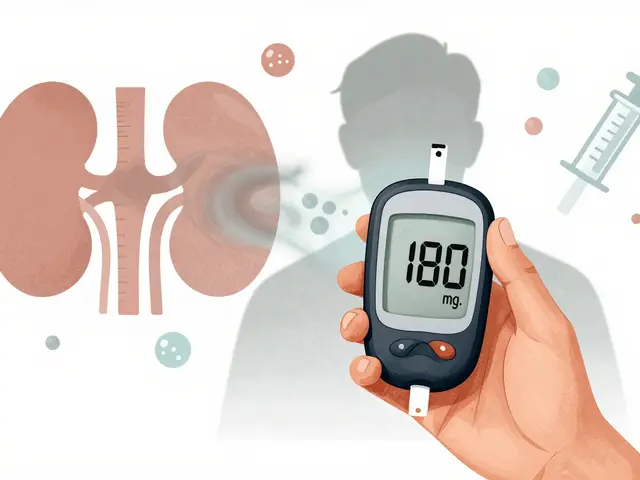Thyroid medication — what works, what to watch for
A single pill can drastically change how you feel — but only when it’s the right thyroid medication and you take it the right way. This page cuts through the noise and gives clear, practical info about common thyroid drugs, how they’re monitored, and everyday tips that actually matter.
Which thyroid drugs exist?
Most people with underactive thyroid (hypothyroidism) take levothyroxine. It replaces the body's T4 hormone and is the standard first choice. Some patients need liothyronine (T3) either alone or added to levothyroxine when symptoms persist despite normal lab results. Desiccated thyroid extract (from pigs) contains both T3 and T4 and is used by some patients and doctors, but its hormone mix can vary between batches.
High thyroid function (hyperthyroidism) is treated differently — common options are antithyroid drugs like methimazole, radioactive iodine, or surgery. This guide focuses on replacement therapy for low thyroid function.
How dosing and monitoring work
Doctors adjust thyroid meds based on your symptoms and blood tests — mainly TSH and sometimes free T4. After a dose change they usually recheck labs in 6–8 weeks because the body needs time to settle. Once stable, annual checks are common unless symptoms or other meds change.
Pregnancy and major weight changes matter. Pregnant people often need a higher levothyroxine dose and closer monitoring. Older adults or those with heart disease may start at lower doses to avoid putting stress on the heart.
What about brands and generics? Generic levothyroxine is widely used and cost-effective. Some patients notice small differences when switching brands — if that happens, tell your doctor so labs and dose can be reviewed.
Watch out for drug and supplement interactions. Take levothyroxine on an empty stomach, 30–60 minutes before breakfast or 3–4 hours after a meal. Calcium, iron, antacids, and some supplements (like high-dose soy or certain multivitamins) block absorption. Common medications such as calcium supplements, iron pills, and some cholesterol drugs can interfere, too. If you take multiple tablets daily, separate them by a few hours.
Signs of too much thyroid hormone include nervousness, fast heartbeat, weight loss, and trouble sleeping. Too little can cause tiredness, weight gain, cold intolerance, and constipation. If you notice changes after starting or switching a drug, contact your doctor — don’t stop on your own.
Thinking of herbal supplements? Mention them to your clinician. Some compounds can alter thyroid tests or interact with meds. For example, certain supplements discussed around thyroid health should be reviewed before use.
Final practical tips: take your pill consistently at the same time, keep a record of brand and dose, get labs after any dose or brand change, and tell every clinician you see that you’re on thyroid meds. Feeling off? Ask for a TSH and free T4 — those two tests answer a lot.

- Jan 28, 2025
- Posted by Cillian Osterfield
Exploring Alternatives to Synthroid for Thyroid Health
Delving into alternatives to Synthroid, this article provides an insightful look at various options for managing hypothyroidism. It explores the benefits and drawbacks of each alternative, examining their unique features and suitability for different lifestyles. Readers will gain a comprehensive understanding of the treatments available beyond the synthetic option of Synthroid. The article also includes a comparison to help readers make informed decisions about their thyroid health.
Categories
- Health and Wellness (72)
- Medications (69)
- Health and Medicine (28)
- Pharmacy Services (12)
- Mental Health (9)
- Health and Career (2)
- Medical Research (2)
- Business and Finance (2)
- Health Information (2)
Latest Posts
©2026 heydoctor.su. All rights reserved





